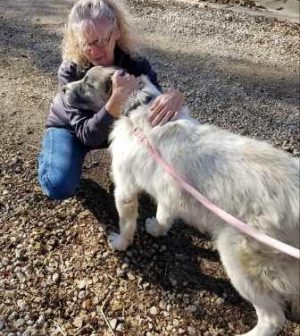- Do you subscribe to Dharma Dog Training’s Newsletter? You should.
- A Unique Campaign from The Humane Society of the United States
- Rabid bats in Omaha- Stay safe, prepared with these tips
- Springtime Activities in Omaha
- Mill Dog Monthly from Bailing Out Benji
- World Spay Day, Legislative Alert in Nebraska
- Attend the Nebraska Rescue Council’s monthly meeting this Saturday
- Five Hard-to-Ignore Reasons to Adopt!
- Paws in Pink to Benefit Breast Cancer Foundation
- VCA, Inc. Acquires MidWest Vet Specialists from Kansas State University
Why Are Dog Training Classes Important In Coquitlam

When you adopt a dog regardless of the age, it’s imperative to initiate training in order to provide the animal with the necessary life skills to live among people and other animals in peace and harmony.
It may appear as though you’ve done a favor for the canine in providing a home away from the harsh life of a stray or living in a cage in the shelter. While this is true in so many aspects, life in a family household can present its own set of stressors for dogs for which they need to learn how to cope in a healthy way.
While more dogs are being adopted into families regularly, most of these are not receiving training, formal or otherwise. Sadly, because of this, thousands of dogs are returned to shelters due to behavioral issues. ‘Pet parents’ contend they can’t deal with these unruly pups, but these instances could have been prevented had the animal been taught the proper skills.
Why Training Canines Is Essential For A Happy, Healthy Life
When you introduce an unfamiliar dog to your home who may have never existed inside a family household, there is no comparable life experience for the animal to relate to, making socialization with people, especially children, and perhaps other pets challenging.
Some people go into the adoption process expecting these puppies to somehow be pre programmed for ‘home life’ and are grossly disappointed when they come to realize an animal actually requires time, commitment, and a great deal of responsibility on the part of the pet parent. That’s the point where many of the canines sadly find their way back to the shelter or abandoned on the street.
It’s critical to understand when you ‘think’ you want to bring a new addition into your home, it requires a massive amount of work. If you want to get your child a puppy as a gift, the kid is not going to care for the animal sufficiently.
It will be the adult’s responsibility to ensure all needs are met. This is a living, breathing, baby that doesn’t grow up. And as you would teach a child manners and life skills, it is vital to do the same for your new dog. When you’re ready for a pup, there are so many benefits training with him can provide. (Click for the different methods of training you can incorporate.)
- Develop A Strong, Positive Bond: One way of developing a healthy relationship with a puppy is in teaching them, and, in turn, coming to understand their learning process. Through the course of working together, trust begins to develop as you present commands and offer rewards for their effort.
Positive reinforcement encourages and makes the experience joyful with no stress. Negative or ‘corporal’ approaches to teaching only brings fear, causing the dog to resent you and not want to participate in the activities. The effects of this can be detrimental if the pup becomes aggressive and chooses to lash out as a defense when feeling threatened.
Working through challenges in training with a humane approach creates a dog that is in control, tolerant, and more predictable in a variety of scenarios.
- Establishing Life Skills: Regardless of how old your new dog is, he may not have ever lived in a family household. You need to find out the history of the pup you adapt to see where he’s been and what he’s been through. That will be a vital component to your training method. A dog cannot be successful in your environment if you don’t teach him how to live in it.
So many people assume a dog couldn’t have a better life than what they can provide, but then their adopted dogs go back to the shelter. It’s not about the surroundings, the things you have to offer, it’s about you and the dog and how you come together to live cohesively. It’s the pet parent’s obligation to teach manners consistent with your lifestyle and in keeping with interacting with other people and animals.
Dogs require mental and physical stimulation every day without fail, a few times a day. These activities keep them centered and allow them to maintain a sense of calm rather than develop undue stress and anxiety. Destructive behaviors ensue when an animal is not enriched.
Ensure puppy’s success by creating an environment that allows ease of effort for him. You will slowly begin to process certain triggers and how the dog handles those situations. In doing so, you can create a friendly-space to make those interactions easier.
If the puppy doesn’t do well with new people, don’t force it. Follow his lead. Install a baby gate to separate puppy from the company, or allow the animal to stay in his room when there are visitors. This decreases puppy’s pressure and allows a sense of safety where he had fear, meaning you’re establishing trust.
- Socialization Habit Enhances: It takes effort and baby steps to train a canine to behave in different scenarios around other people or animals. But increasing the ability to interact socially develops the dog’s confidence and enhances their ability to thrive in domestic life. Consistency is key when working on these skills and commitment in order to be successful.
Expectations of these dear creatures are extraordinarily high when we anticipate that they will be friendly with anyone they come upon, even if they may not necessarily feel especially comfortable in every scenario.
In presenting good experiences while in the company of other people, animals, or different settings, socialization will gradually take its course. Ideally, this takes place at a very young age, but dogs come up for adoption at any given age. It’s not always possible to train at an ‘ideal’ age.
Socializing doesn’t mean touch. Being social means observing and conversing with a comfortable space intact. In instructing puppies, people also need to be instructed to keep their distance from the pup. Many people who see an animal automatically reach for a pet, but then animals do as well.
When your dog is in training (and perhaps after), the idea is to keep him comfortable in these scenarios and not force any unwanted interaction. There is no disrespect in asking people to not touch your dog or to keep their animals away from your dog, particularly if they’re in training, if the other person is a responsible pet parent, they should understand entirely.
Simply because you keep your canine from a situation that creates discomfort for him is not a failure in his training, but an opportunity to avoid stress and anxiety for your companion.
- Preventing Behavioral Issues: Over the course of working with your new addition, you’ll begin to notice that you develop your own form of communication that brings comfort and security to both of you. The time and attention you invest in helping your furry friend learn how to live within your environment, the less likely he will act out of frustration in not knowing how to contend.
Unfortunately, in a lot of real-time situations where the pet parents are experiencing their own world stresses, puppy receives the backlash in the way of negative repercussions to misbehaving with either scolding or corporal punishment, neither of which are acceptable.
It can’t be stressed enough. If you are too busy and your days are stretched too thin to have a newborn baby, then you have no time for a dog. It is heart wrenching to see a dog gleefully taken from a shelter for adoption and then immediately brought back because of irresponsibility. Canines don’t come prepared for your specific lifestyle.
They’ve never lived with you. You have to guide them on your path. The commands sit, stay, come were taught in a shelter, in another home with other people. You are new. You have to start again. Use your hands, point, show them what you mean. Dogs are smart animals, but you have to put in the work.
There is a perceived notion that positive reinforcement trainers are incapable of saying no to dogs, and animals taught in this manner are unruly and out of control. Anyone can give a dog a reward to encourage them to do what they expect them to do, but it has to stick. It takes an exceptional aptitude on the part of a trainer to modify negative behaviors without any type of force or negativity and have the good behavior persist.
When pet parents seek assistance from good dog training in Coquitlam, BC, they’re hoping for positive changes in behavior without damage to trust with puppies. The number of positive reinforcement trainers are growing steadily with the professionals receiving extra certifications and collaborations with vet clinics in an effort to provide a beneficial experience for both animal and parent.
When Puppy Has Homework
It’s imperative to be consistent with your canine at home when he’s not in training. If you notice puppy performing an activity without being told, he should receive a reward and praise on the spot, so he associates the good behavior with positive reinforcement.
- Instant Gratification: As soon as puppy completes an action like sit or stay, the reward needs to be instant. A dog’s memory span is short as far as making a connection between what happened and the result. If you aren’t immediately prepared with the treat, the dog will become confused. He needs to get the reward while sitting if the command was to sit.
- Simplicity Of Command: When instructing the dog, always be short, concise, and consistent. Never stray from the standard commands used for training. Some of these include:
- Sit
- Down
- Stay
- Come
- Stand
- Heel
Ultimately, the hand signals and words that you opt for will be your preference, but it’s critical that you use the same hand and verbal cues with your dog as those used in training all the time so the dog can develop an understanding. Dog training is optimally successful when the humans can come to an agreement on the verbal and hand cues along with stance and how the leash is held.
When using a professional trainer, typically one or both pet parents will attend the sessions, so they can present the same consistent methods at home. If there are family members who don’t attend the training living in the home, it’s critical that everyone be cued in on the techniques and that everyone be consistent in their handling of the puppy.
Everyone needs to be ‘consistent.’ That word has been and will be thrown around a great deal when it comes to pets, but it is a vital component when dealing with animals. Outside the professional medium, you should try to do small amounts of work with your pup (not so much to stress the dog) at home each day.
If there is any sense of frustration, look to yourself and your method, not the dog. There is something in your approach that is not working. You need to attempt it differently. This is a learning opportunity for you with the trainer in the next session. It would be best if you never allow your furry companion to see agitation or upset in your demeanor. The only thing dogs want is to make their pet parents happy. If a puppy sees you upset, he’s likely to believe he did something wrong. You should always remain positive when working with animals.
Final Word
There is nothing saying you can’t be frustrated as a new ‘parent.’ You will be. Puppies, older dogs, doesn’t matter. When a new addition comes into your life, it’s turned upside down. You have to get used to each other, learn from each other, and teach each other.
Pup is scared and so are you. But investing in appropriate training and putting in adequate love, time, effort, companionship, positivity – and more love, will bring you one of the closest relationships you’ll ever have. The love of a dog is like no other.
If you’re attempting to adopt a dog for your child whom you expect to take care of the animal, with you having no responsibility for its care, please don’t do that. These are living creatures with a soul. They definitely deserve better.
Latest News
-
3 Tips for Pet Owners on Training Rescue Dogs
Owning a rescue dog can take some work compared to...
- Posted 3 weeks ago
- 0
-
10 Tips To Remember When Bringing Your Rescue Dog Home
Bringing your new rescue dog home for the first time...
- Posted 4 weeks ago
- 0
-
Choosing the Right Pet for Your Lifestyle
Are you thinking about getting a pet but unsure what...
- Posted 1 month ago
- 0
-
How to Make Your Rescue Pet as Comfortable as Possible
Did you bring home a new pet from a shelter...
- Posted 2 months ago
- 0
-
How Having A Pet Can Change Your Life
Having a pet can open your heart in ways that...
- Posted 7 months ago
- 0
-
How To Improve The Life Of Your Senior Pet
Do you have an elderly fur baby and want to...
- Posted 8 months ago
- 0
-
Springtime Activities To Enjoy With Your Furry Friends
Are you preparing for warmer weather and want some ideas...
- Posted 9 months ago
- 0

















You must be logged in to post a comment Login